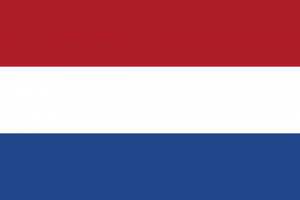Language/Dutch/Grammar/Questions
Hi Dutch learners! 😊
In this lesson, we will be diving into the world of questions in Dutch. We'll learn how to form questions with words like "wie" (who), "wat" (what), "waar" (where), and more. Plus, we'll explore a few unique aspects of Dutch question formation that you might not find in other languages. Let's get started!
Don't hesitate to look into these other pages after completing this lesson: Future Tense, Conditional Mood in Dutch, Plural & How to Use Be.
Basic Question Words[edit | edit source]
Just like in English, Dutch has a set of basic question words that are used to ask questions. Let's take a look at them here:
| Dutch | Pronunciation | English |
|---|---|---|
| wie | [ˈʋi] | who |
| wat | [ʋɑt] | what |
| waar | [ʋaːr] | where |
| wanneer | [ʋɛnˈdreːr] | when |
| waarom | [ʋaːˈrɔm] | why |
| hoe | [hu] | how |
| welke | [ˈʋɛlkə] | which |
Here's an example conversation that uses some of these basic question words:
- Person 1: Wie ben jij? ([Who are you?])
- Person 2: Ik ben Mark. ([I am Mark.])
- Person 1: Wat is jouw favoriete kleur? ([What is your favorite color?])
- Person 2: Mijn favoriete kleur is blauw. ([My favorite color is blue.])
Inverted Word Order[edit | edit source]
One thing that can be confusing about Dutch questions is the way that word order changes. In a typical Dutch sentence, the subject comes before the verb:
- Ik eet een appel. ([I eat an apple.])
But in a question, the verb comes before the subject:
- Eet jij een appel? ([Do you eat an apple?])
This inverted word order is similar to what you might find in some other languages, like French or Spanish. Here's another example conversation that illustrates this:
- Person 1: Ga jij naar het feest vanavond? ([Are you going to the party tonight?])
- Person 2: Ja, ik ga naar het feest. ([Yes, I am going to the party.])
Tag Questions[edit | edit source]
Another unique aspect of Dutch questions is the use of tag questions. These are small phrases that are added to the end of a statement to turn it into a question. Here are a few examples:
- Het is mooi weer, hè? ([It's nice weather, isn't it?])
- Jij houdt van drop, toch? ([You like licorice, don't you?])
- Dat is niet waar, of wel? ([That's not true, is it?])
Notice that the tag question in each of these examples is formed with the words "hè," "toch," and "of wel," respectively. These words are used in different situations and can be a bit tricky to master, so we won't go into too much detail here. But it's good to be aware of them so you can recognize them when you hear them.
More Examples[edit | edit source]
Let's take a look at a few more examples of questions in Dutch:
- Waar woon jij? ([Where do you live?])
- Wanneer ben jij geboren? ([When were you born?])
- Wie heeft dat gedaan? ([Who did that?])
- Hoeveel kost het? ([How much does it cost?])
- Welke taal spreek jij? ([Which language do you speak?])
And here's a short dialogue using some of these questions:
- Person 1: Waar ben jij geboren? ([Where were you born?])
- Person 2: Ik ben geboren in Amsterdam. ([I was born in Amsterdam.])
- Person 1: Welke taal spreek jij thuis? ([Which language do you speak at home?])
- Person 2: Thuis spreek ik Nederlands en Engels. ([At home, I speak Dutch and English.])
Practice[edit | edit source]
To practice forming questions in Dutch, try finding a language partner on Polyglot Club. Find native speakers and ask them any questions you might have. You can also review more Dutch Grammar lessons on the Polyglot Club website.
Sources[edit | edit source]
- Dutch Grammar • Questions
- Forming questions in Dutch: Dutch interrogatives & Dutch grammar
- Dutch Grammar • Open questions
➡ If you have any questions, please ask them in the comments section below.
➡ Feel free to edit this wiki page if you think it can be improved. 😎
Videos[edit | edit source]
Dutch grammar applied: How to make questions in Dutch with ...[edit | edit source]
Other Lessons[edit | edit source]
- Future Tense
- Prepositions
- Interrogative words in Dutch
- Definite Articles in Dutch
- Genitive Case in Dutch
- Adjectives
- Negation
- Comaratives and Superlatives
- The Instrumental Case in Dutch

